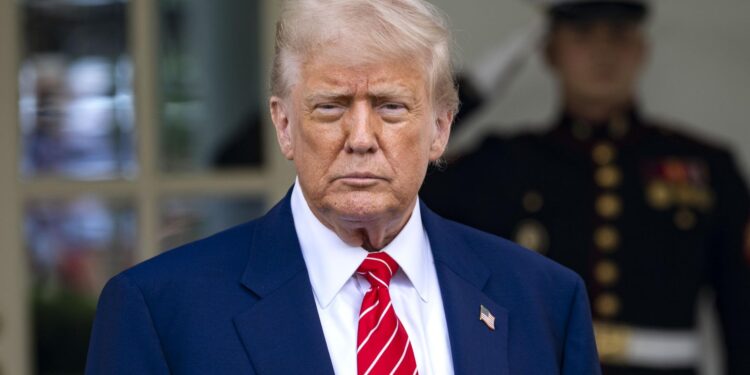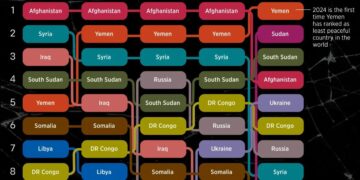Israel’s Minister of Culture Celebrates Trump’s Transformative Role in Middle East Relations
In a revealing statement that highlights the complex nature of Middle Eastern geopolitics, Israel’s Minister of Culture has praised former U.S. President Donald Trump as a “genuine miracle” for Israel. This commendation emerges amid ongoing debates about Trump’s legacy and his administration’s profound influence on U.S.-Israel relations, especially regarding policies that have reshaped the regional landscape. As tensions persist and alliances shift across the Middle East, this endorsement from a prominent Israeli official underscores the divided opinions surrounding Trump’s impact on Israeli diplomacy and security strategies.
Trump’s Presidency: A Turning Point in U.S.-Israel Ties During Heightened Regional Strife
The tenure of President Trump marked an unprecedented strengthening of ties between Washington and Jerusalem against a backdrop of escalating instability in the Middle East. The landmark decision to officially recognize Jerusalem as Israel’s capital in December 2017—and subsequently relocating the American embassy there—signaled a dramatic pivot in U.S. foreign policy, affirming unwavering support for Israel amidst longstanding territorial disputes.
This move was widely celebrated by Israeli leadership as both symbolic and strategic, reinforcing national sovereignty claims while provoking intense reactions from neighboring states and international actors alike. The Minister of Culture described these developments as nothing short of miraculous, emphasizing their significance during an era fraught with diplomatic challenges.
The Abraham Accords: Redefining Peace Prospects Through New Alliances
One of Trump’s most notable achievements was facilitating normalization agreements between Israel and several Arab nations—including the United Arab Emirates, Bahrain, Sudan, and Morocco—through what became known as the Abraham Accords. These historic accords not only opened doors to diplomatic recognition but also laid groundwork for economic collaboration across sectors such as technology, tourism, and energy.
This breakthrough altered traditional power dynamics within the region by fostering cooperation where hostility had long prevailed. It positioned Israel more centrally within regional stability efforts while encouraging other countries to reconsider entrenched rivalries—a development many analysts attribute directly to Trump’s unconventional diplomatic approach.
Cultural Reflections: An Israeli Perspective on Trump’s Influence Over Regional Stability
The cultural dimension behind this political praise reveals how deeply intertwined leadership decisions are with national identity narratives in Israel today. The minister highlighted three core pillars underpinning Trump’s positive legacy:
- The Abraham Accords: Pioneering peace treaties that bridged decades-old divides between Israel and key Arab states.
- Jerusalem Recognition: Affirming Jerusalem unequivocally as Israel’s capital city—a move seen by supporters as validating historical claims.
- Iran Nuclear Deal Withdrawal: Exiting agreements perceived by many Israelis as insufficiently stringent against Iran’s nuclear ambitions—thereby enhancing regional security postures.
The minister argued these initiatives collectively ushered in new opportunities for coexistence amid one of history’s most protracted conflicts—a sentiment echoed by segments within both Israeli society and parts of its neighboring populations seeking peaceful engagement over confrontation.
A Contemporary Example: Economic Cooperation Flourishing Post-Accords
An illustrative case is recent joint ventures launched between Israeli tech firms and Gulf investors since normalization began; projects focusing on renewable energy solutions exemplify how diplomacy can translate into tangible benefits beyond politics alone—fostering innovation ecosystems previously unimaginable just years ago.
Evaluating Long-Term Consequences: How Trump-Era Policies Reshape Regional Dynamics
The enduring effects stemming from former President Trump’s policies continue to provoke analysis among experts monitoring Middle Eastern affairs closely. His administration catalyzed shifts not only diplomatically but also militarily—with increased arms sales to allies like Saudi Arabia alongside recalibrated troop deployments aimed at countering Iranian influence throughout Syria, Iraq, Lebanon, Yemen—and beyond.
This recalibration has led observers to consider several critical questions shaping future trajectories:
- Security Implications: Will normalized relations reduce military tensions or simply redistribute them among new coalitions?
- Evolving Economic Ties: Are emerging partnerships sustainable enough to withstand political upheavals common across these nations?
- Sociopolitical Impact Within Arab States: How do internal factions respond when governments pursue rapprochement with historically adversarial neighbors?
The answers remain fluid; however current trends suggest that while some alliances forged under Trump may face tests ahead due to shifting domestic politics or external pressures (such as renewed conflicts or global economic downturns), they nonetheless represent foundational changes unlikely to be fully reversed anytime soon.
For instance, Saudi Arabia recently resumed embassy operations in Kabul , signaling nuanced shifts even outside direct bilateral ties with Israel but reflective overall geopolitical realignments influenced indirectly by broader US policy stances during this period.
As historians look back at this era decades hence—the groundwork laid through these initiatives will likely define much about how peace processes evolve or stall moving forward.
A Final Word: Reflecting on Enduring Legacies Amid Ongoing Challenges
The accolade bestowed upon Donald Trump by an influential figure within Israeli governance encapsulates wider sentiments held among those who view his presidency as transformative for both bilateral relations with America and broader Middle Eastern diplomacy.
While controversies surrounding his methods persist globally—and critics argue some actions exacerbated divisions—the undeniable fact remains that his administration introduced bold policy shifts which continue shaping discourse around peace prospects today.
As geopolitical landscapes evolve—with fresh negotiations underway concerning Palestinian-Israeli issues alongside emerging regional partnerships—the echoes from this chapter remind us how pivotal leadership decisions resonate far beyond immediate headlines.
Ultimately,the world watches closely whether such endorsements translate into lasting stability or if unresolved tensions will demand new approaches tailored for tomorrow’s realities.














